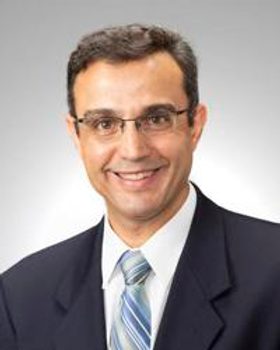Acute Pulmonary Histoplasmosis Overview
Learn About Acute Pulmonary Histoplasmosis
Acute pulmonary histoplasmosis is a respiratory infection that is caused by inhaling the spores of the fungus Histoplasma capsulatum.
Histoplasma capsulatum is the name of the fungus that causes histoplasmosis. It is found in the central and eastern United States, eastern Canada, Mexico, Central America, South America, Africa, and Southeast Asia. It is commonly found in the soil in river valleys. It gets into the soil mostly from bird and bat droppings.
You can get sick when you breathe in spores that the fungus produces. Every year, thousands of people with a normal immune system worldwide are infected, but most do not become seriously sick. Most have no symptoms or have only a mild flu-like illness and recover without any treatment.
Acute pulmonary histoplasmosis may happen as an epidemic, with many people in one region becoming sick at the same time. People with weakened immune systems (see Symptoms section below) are more likely to:
- Develop the disease if exposed to the fungus
- Have the disease come back
- Have more symptoms, and more serious symptoms, than others who get the disease
Risk factors include traveling to or living in the central or eastern United States near the Ohio and Mississippi river valleys and being exposed to the droppings of birds and bats. This threat is greatest after an old building is torn down and spores get into the air, or when exploring caves.
Most people with acute pulmonary histoplasmosis have no symptoms or only mild symptoms. The most common symptoms are:
- Chest pain
- Chills
- Cough
- Fever
- Joint pain and stiffness
- Muscle aches and stiffness
- Rash (usually small sores on the lower legs)
- Shortness of breath
Acute pulmonary histoplasmosis can be a serious illness in the very young, older people, and people with a weakened immune system, including those who:
- Have HIV/AIDS
- Have had bone marrow or solid organ transplants
- Take medicines that suppress their immune system
Symptoms in these people may include:
- Inflammation around the heart (called pericarditis)
- Serious lung infections
- Severe joint pain
Most cases of histoplasmosis clear up without specific treatment. People are advised to rest and take medicine to control fever.
Your health care provider may prescribe medicine if you are sick for more than 4 weeks, have a weakened immune system, or are having breathing problems.
Marwan Azar is an Infectious Disease provider in New Haven, Connecticut. Dr. Azar is rated as a Distinguished provider by MediFind in the treatment of Acute Pulmonary Histoplasmosis. His top areas of expertise are Blastomycosis, Acute Pulmonary Histoplasmosis, Nocardiosis, Tissue Biopsy, and Endoscopy.
UPMC Transplant Services - Cardiothoracic
Chadi Hage is a Transplant Surgeon in Pittsburgh, Pennsylvania. Dr. Hage is rated as a Distinguished provider by MediFind in the treatment of Acute Pulmonary Histoplasmosis. His top areas of expertise are Blastomycosis, Acute Pulmonary Histoplasmosis, Heart Failure with Preserved Ejection Fraction (HFpEF), Pulmonary Fibrosis, and Lung Transplant. Dr. Hage is currently accepting new patients.
University Of Alabama Health Services Foundation, PC
Peter Pappas is an Infectious Disease provider in Birmingham, Alabama. Dr. Pappas is rated as a Distinguished provider by MediFind in the treatment of Acute Pulmonary Histoplasmosis. His top areas of expertise are Cryptococcosis, Sepsis, Meningitis, and Blastomycosis. Dr. Pappas is currently accepting new patients.
When histoplasmosis lung infection is severe or gets worse, the illness may last up to many months. Even then, it is rarely fatal.
The illness can get worse over time and become a long-term (chronic) lung infection (which doesn't go away).
Histoplasmosis can spread to other organs through the bloodstream (dissemination). This is often seen in infants, young children, and people with a suppressed immune system.
Contact your provider if:
- You have symptoms of histoplasmosis, especially if you have a weakened immune system or have recently been exposed to bird or bat droppings
- You are being treated for histoplasmosis and develop new symptoms
Avoid contact with bird or bat droppings if you are in an area where the spore is common, especially if you have a weakened immune system.
Published Date: March 16, 2024
Published By: Jatin M. Vyas, MD, PhD, Roy and Diana Vagelos Professor in Medicine, Columbia University Vagelos College of Physicians and Surgeons, Division of Infectious Diseases, Department of Medicine, New York, NY. Also reviewed by David C. Dugdale, MD, Medical Director, Brenda Conaway, Editorial Director, and the A.D.A.M. Editorial team.
Deepe GS. Histoplasma capsulatum (histoplasmosis). In: Bennett JE, Dolin R, Blaser MJ, eds. Mandell, Douglas, and Bennett's Principles and Practice of Infectious Diseases. 9th ed. Philadelphia, PA: Elsevier; 2020:chap 263.
Thompson GR, Miceli MH. Endemic mycoses. In: Goldman L, Cooney KA, eds. Goldman-Cecil Medicine. 27th ed. Philadelphia, PA: Elsevier; 2024:chap 308.

